Nullifying the phrase ‘beggars can’t be choosers’, a non-profit organisation has launched a project to help them earn a living by making items such as laptop and conference bags.
Common Man Trust, a not-for-profit in Varanasi, conceptualised the initiative ‘Beggars Corporation’ in February and launched it in July.
Laying stress on investment, and not on donation, this corporation envisages to make Varanasi — represented in the Lok Sabha by Prime Minister Narendra Modi — become a beggar-free city by 2023.
The group has trained 12 families of beggars in Varanasi for different vocations and they have now shunned beggary.
“If the pilot model succeeds, it can be replicated elsewhere in the country,” Chandra Mishra, who heads the Common Man Trust, told PTI.
After the initial success, the Trust intends to turn Beggars Corporation into a profit making venture.
“Earlier, we were experimenting as to whether the beggars would work and whether their products can be marketed. Their products have been accepted. Now, we are trying to turn it into a profit-making company,” he said.
According to Mr Mishra, the Beggars’ Corporation will be registered as a ‘for profit’ company by March 2022 post it intends to raise ₹ 2.5 crore from angel investors and venture capitalists.
“We will then pick 100 beggar families in the first phase in Varanasi,” Mr Chandra said.
The Trust also runs a ‘School of Life’ at Rajendra Prasad Ghat in Varanasi, where 32 children from beggar families are studying.
Lauding the initiative, chairman MSME, Confederation of Indian Micro Small Medium Enterprises, Uttar Pradesh, Gaurav Prakash said, “This idea has the power to reform and transform the livelihood and give them (the beggars) dignity and respect, which will be a huge game changer in coming times.”
As per the Bill and Melinda Gates Foundation report of 2017, Indians spend ₹ 34,000 crore as donation to beggars.
“Since we are highly religious, we believe we earn punya (spiritual reward) by giving alms to the poor. This ‘punya’ market was ₹ 34,000 crores in 2017 and it is growing gradually,” Mr Mishra said.
The Ministry of Social Justice and Empowerment citing the 2011 census says India has over 4 lakh beggars.
Mr Mishra urged the government to allow the organisation to identify beggars in Varanasi and issue them identity cards so his group could differentiate between those really in need of help and those part of rackets.
He said the differently-abled and aged beggars can be shifted to rehabilitation centres while those in the age group of 18-45 years can be trained for three months and be provided with loans to float their business on the model of Bangladesh’s Nobel laureate Muhammad Yunus.
Mr Mishra said he needed to change the mindset of the 12 families to being them to the mainstream of the society as they suffered inferiority complex and lacked confidence.
Also, the psychology of a male beggar is that he does not want to work and forces his children to beg. It is here that we need the support of the government to create a conducive atmosphere through work,” Mr Mishra said. (Press Trust of India)

Readers like you, make ESHADOOT work possible. We need your support to deliver quality and positive news about India and Indian diaspora - and to keep it open for everyone. Your support is essential to continue our efforts. Every contribution, however big or small, is so valuable for our future.


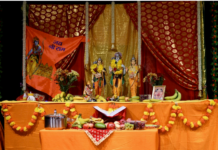
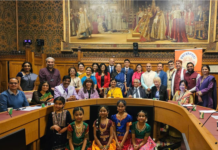

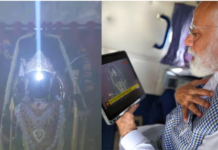
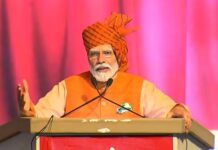
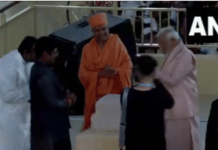




very good actions and wish them full success.
brilliant piece of news, Eshadhoot is really taking good shape, I have been a vivid reader from day one!
Congratulations to the team.
This is a laudable initiative which Iif successful, should be a template for other cities
One other aspect to be looked at closely is how is human trafficking, drug abuse and general lack of education affects these families